The 10 best Google Drive alternatives for 2025 (free & paid)

Stevia Putri
Last edited August 24, 2025

Let's be honest, Google Drive is practically a utility at this point. With over a billion users, it’s the default digital drawer for everything from vacation snaps to company-wide project plans. It’s easy, it’s familiar, and it plays nice with all the other Google tools we use daily. But being the default doesn't mean it's the best tool for every job. More and more people are starting to look for Google Drive alternatives because they’re getting nervous about privacy, finding it clunky for team collaboration, and getting fed up with not being able to find a file they know is in there somewhere.
This guide is here to walk you through the 10 best alternatives to Google Drive, each with its own strengths. Whether you need military-grade security, smoother teamwork, or just a smarter way to handle your company's information, you’ll find a solid option on this list.
Before you choose Google Drive alternatives: What are cloud storage platforms?
In a nutshell, cloud storage platforms are online services that let you stash your files on remote servers instead of clogging up your computer’s hard drive. Think of it as a digital locker you can open from your phone, laptop, or tablet as long as you have an internet connection. The benefits are pretty clear: your files stay in sync everywhere, sharing them with others is a breeze, and your computer gets to breathe a little easier.
Why look for Google Drive alternatives?
While Google Drive is a decent all-rounder, its one-size-fits-all design creates some real headaches, especially for businesses. Here’s why you might be ready to make a switch.
-
Your privacy is kind of a big deal. It’s no secret that Google’s business is built on data. According to a report from Proton, Google has the ability to scan the contents of your files. For any person or business dealing with sensitive information, that’s a pretty big red flag. You shouldn't have to wonder if a company is peeking at your confidential docs.
-
It’s a mess for business knowledge. For teams, Google Drive often turns into a digital junk drawer. Important documents, project briefs, and onboarding guides get lost in a chaotic web of folders within folders. It’s a great place to dump files, but a terrible system for actually organizing and finding information when you need it. Before you know it, it becomes a knowledge graveyard where good ideas and crucial data go to be forgotten.
-
It’s a jack-of-all-trades, master of none. Google Drive does a lot of things reasonably well, but it doesn't really excel at anything specific. If you need advanced security, a way to manage thousands of images, or a tool to run an internal help desk, you’ll find that specialized platforms offer much better features and a more tailored experience.
-
The per-user pricing adds up. Google Workspace’s pricing model, which charges you for every user, can get surprisingly expensive as your team gets bigger. This often leads businesses to search for options that are either more affordable or deliver more bang for their buck.
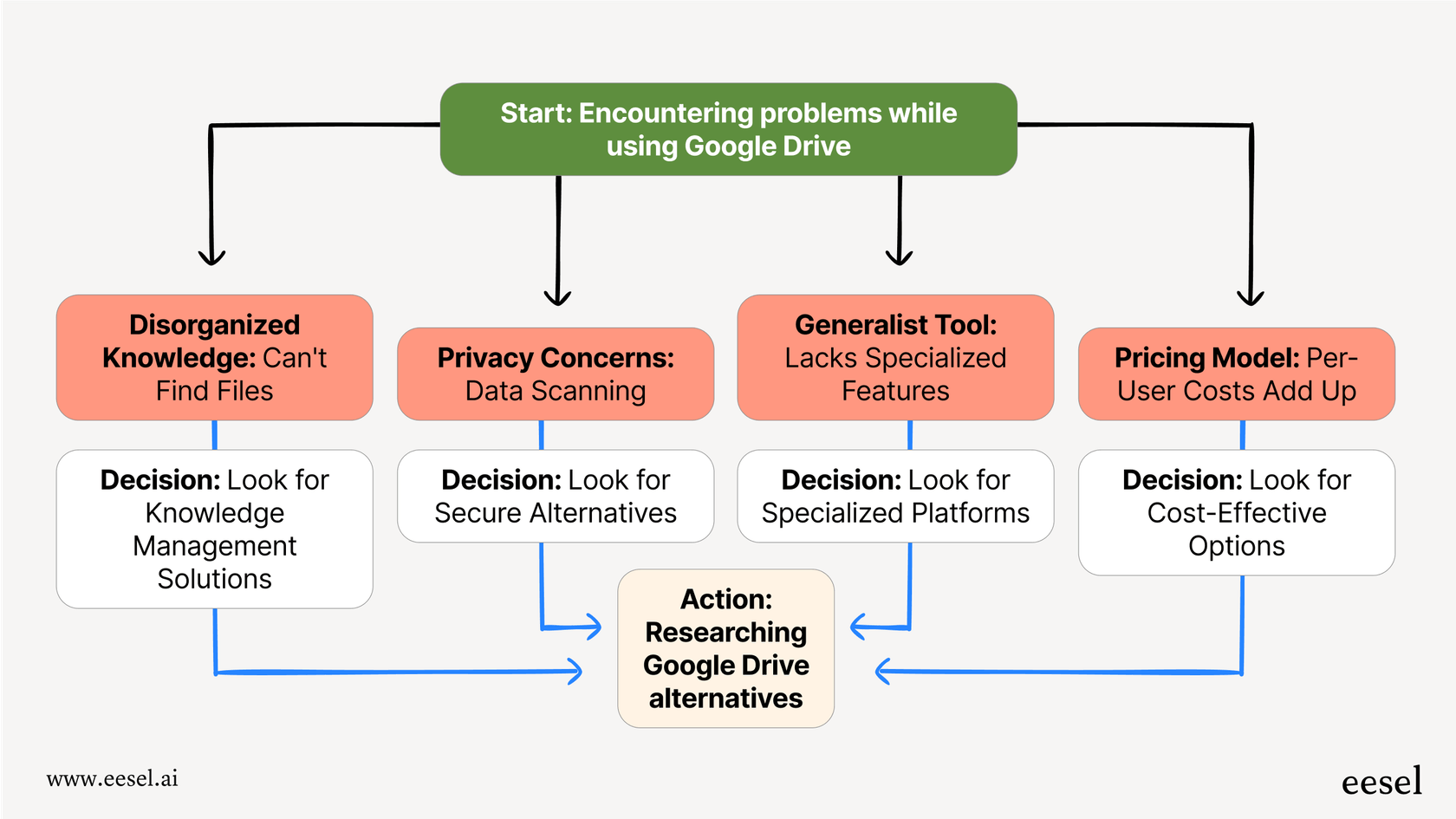
How we chose the best Google Drive alternatives
To put this list together, we focused on what actually matters to people and businesses day-to-day. We didn’t just look at who gives you the most gigabytes. Our choices were based on a few key things:
- Security & Privacy: We looked for platforms with rock-solid features like end-to-end encryption, clear privacy policies, and tools that give you real control over your data.
- Usability & Features: How easy is it to use? Does it offer cool features that go beyond just storing files?
- Collaboration: We checked out how well each platform works for teams, including things like real-time editing, commenting, and smart sharing settings.
- Pricing: We weighed what you get against what you pay for both the free and paid plans.
- Specialized Use Cases: We gave extra points to platforms that do one thing exceptionally well, whether it’s for big companies, managing media, or protecting your privacy.
Comparison of the top 10 Google Drive alternatives
| Tool | Best For | Free Plan | Starting Price (per month) | Key Feature |
|---|---|---|---|---|
| eesel AI | Unlocking Business Knowledge | N/A (Free Trial) | $239 (annual plan) | Connects to Drive to power AI support |
| Microsoft OneDrive | Windows & M365 Users | 5 GB | $1.99 | Deep Microsoft Office integration |
| Dropbox | Fast Syncing & Simplicity | 2 GB | $9.99 | Block-level file synchronization |
| Sync.com | Top-Tier Security | 5 GB | $8 | Zero-knowledge end-to-end encryption |
| pCloud | Media & Lifetime Plans | Up to 10 GB | $4.17 (annual plan) | Built-in media player & lifetime deals |
| Box | Enterprise & Business Teams | 10 GB | $5/user | Advanced admin & security controls |
| iCloud Drive | Apple Ecosystem Users | 5 GB | $0.99 | Seamless integration with Apple devices |
| Proton Drive | Ultimate Privacy | Up to 5 GB | $3.99 | Swiss-based, end-to-end encrypted |
| Nextcloud | Self-Hosting & Control | Open Source (Free) | Varies | Full control over your data |
| Icedrive | User-Friendly Interface | 10 GB | $2.99 (2-year plan) | Sleek design & encrypted folder |
10 best Google Drive alternatives for 2025
Alright, let's get into the specifics. Just remember, the "best" choice is always the one that fits how you work and solves the problems that are actually bugging you.
1. eesel AI: Best for making your team's knowledge useful
Let’s face it: Google Drive is where your company's collective brain goes to die. It's a great place to store docs, but finding and using that info when it counts is a whole other story. eesel AI is the perfect solution for teams who are tired of using Drive as a clunky, unsearchable wiki.
Instead of making you go through a painful migration, eesel AI plugs right into your Google Drive, Confluence, Notion, and other places you keep information. It uses all that knowledge to power an AI Copilot that helps your support team draft replies, an internal chatbot for employees to ask questions, and smart automations for your help desk. You can keep using Drive for storage, but eesel AI makes the stuff inside it instantly findable and actually useful.
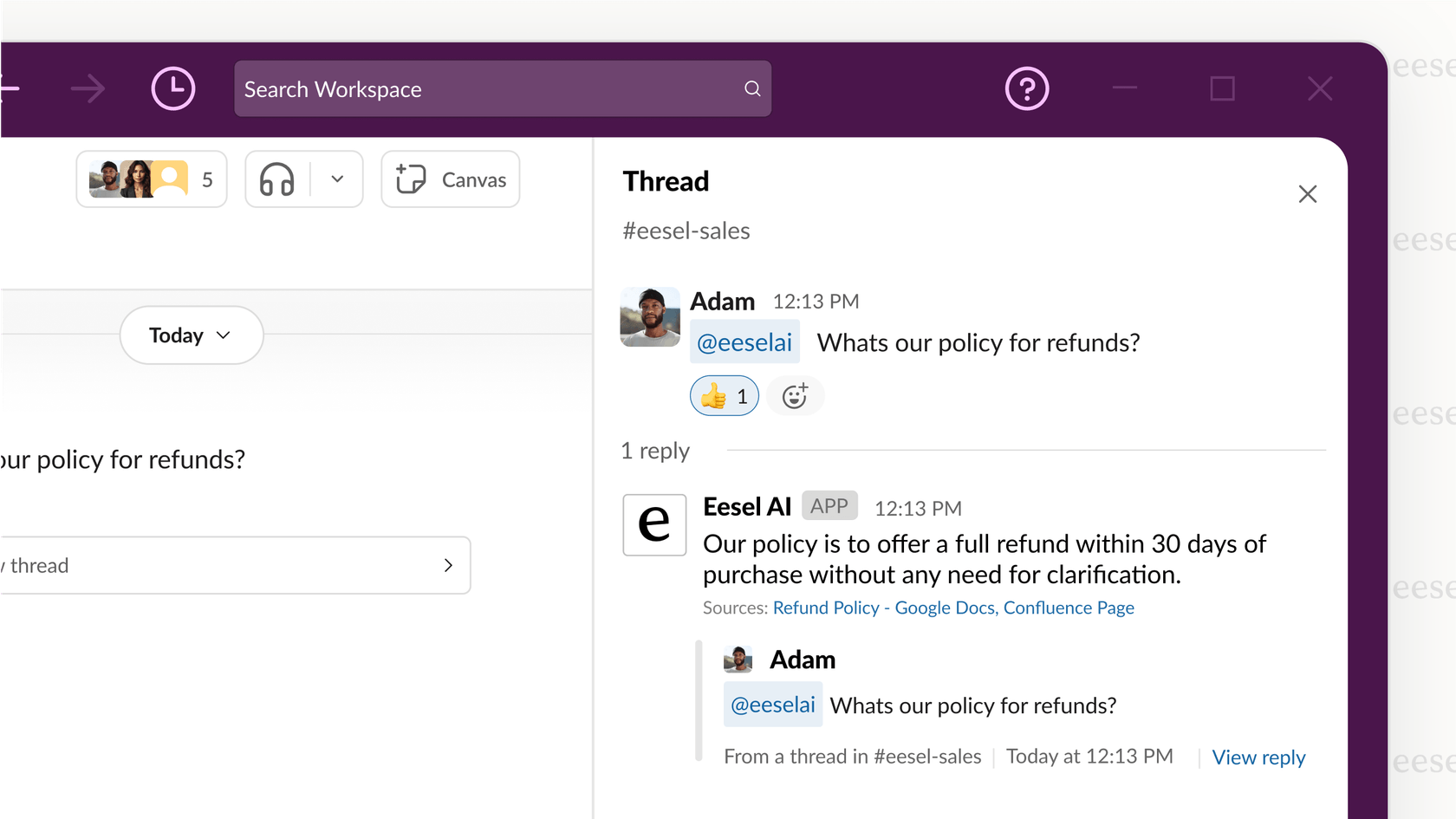
Pros:
- It solves the single biggest problem with shared drives: making information findable.
- It works with the tools you already use (like Google Docs, Slack, and Zendesk) so you don't have to move anything.
- It automates internal support and answers employee questions, which saves everyone a ton of time.
Cons:
- It's not a classic file storage platform for your personal photos.
- It’s built specifically for business and team workflows.
Pricing: Plans start at $239/month (billed annually) for the Team plan, which includes up to 1,000 AI interactions per month.
2. Microsoft OneDrive: Best for windows and Microsoft 365 users
As Microsoft’s own cloud storage, OneDrive is the obvious choice for anyone who lives in the Windows and Microsoft 365 world. Its biggest selling point is how smoothly it works with apps like Word, Excel, and PowerPoint, making it super easy for teams to edit documents together in real-time. It also has a "Personal Vault" feature that adds an extra layer of security for your most sensitive files. If your team runs on Microsoft, this is a no-brainer.
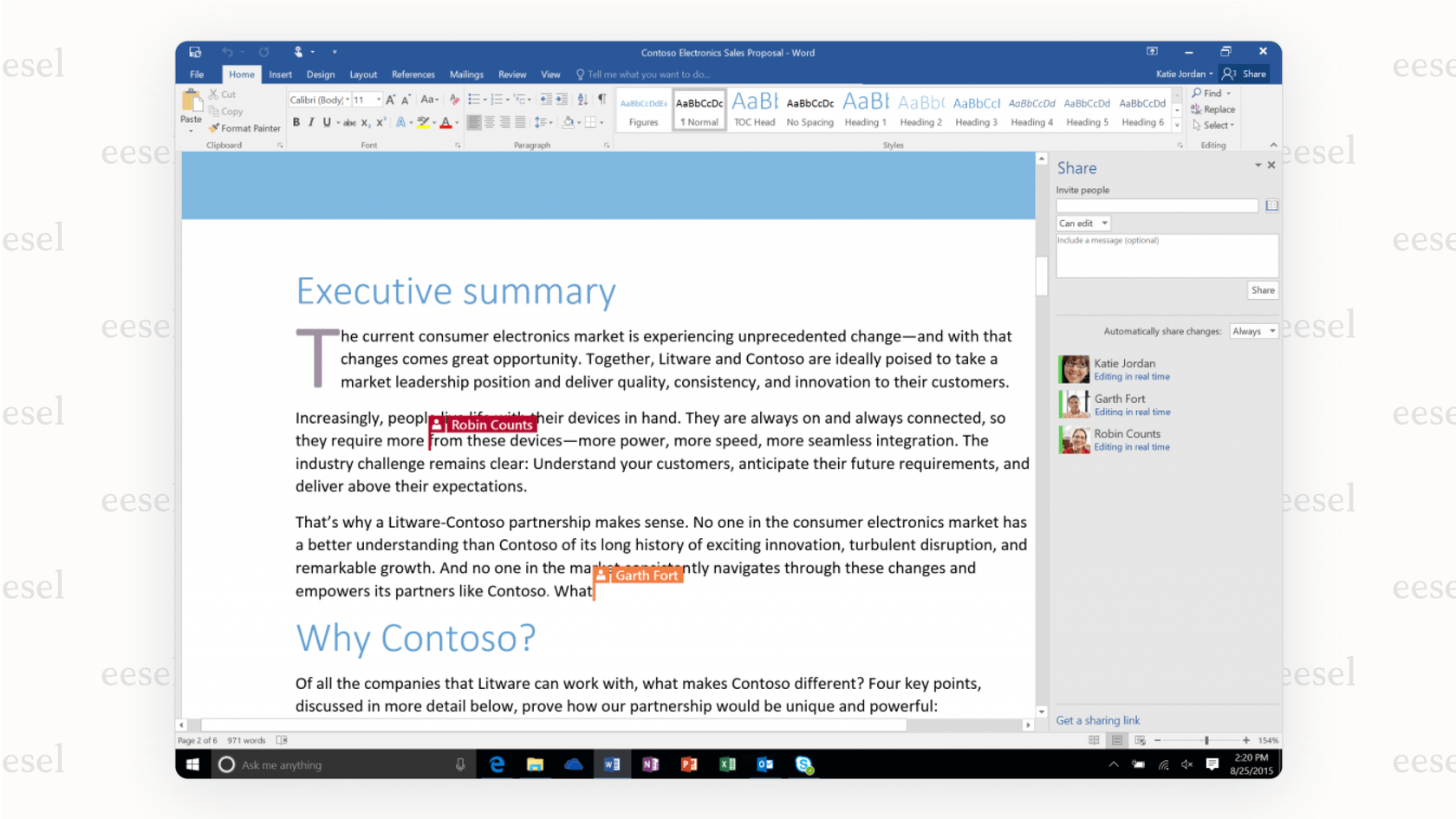
Pros:
- You can't beat its integration with Microsoft 365.
- It's baked right into the Windows operating system.
Cons:
- It feels a bit clunky if you work with tools outside the Microsoft bubble.
- Its privacy policy is pretty similar to Google's, which might not be the change you're looking for.
Pricing: OneDrive has a free 5 GB plan. Paid plans start at $1.99/month for 100 GB of storage.
3. Dropbox: Best for fast syncing and simplicity
Dropbox was one of the first big names in cloud storage, and it earned its reputation by being reliable, fast, and dead simple to use. It uses something called "block-level file copying," which is a fancy way of saying it only syncs the parts of a file that have changed. This makes it way faster than Google Drive, especially for big files. The interface is famously clean and works just like the folders you’re already used to on your computer.
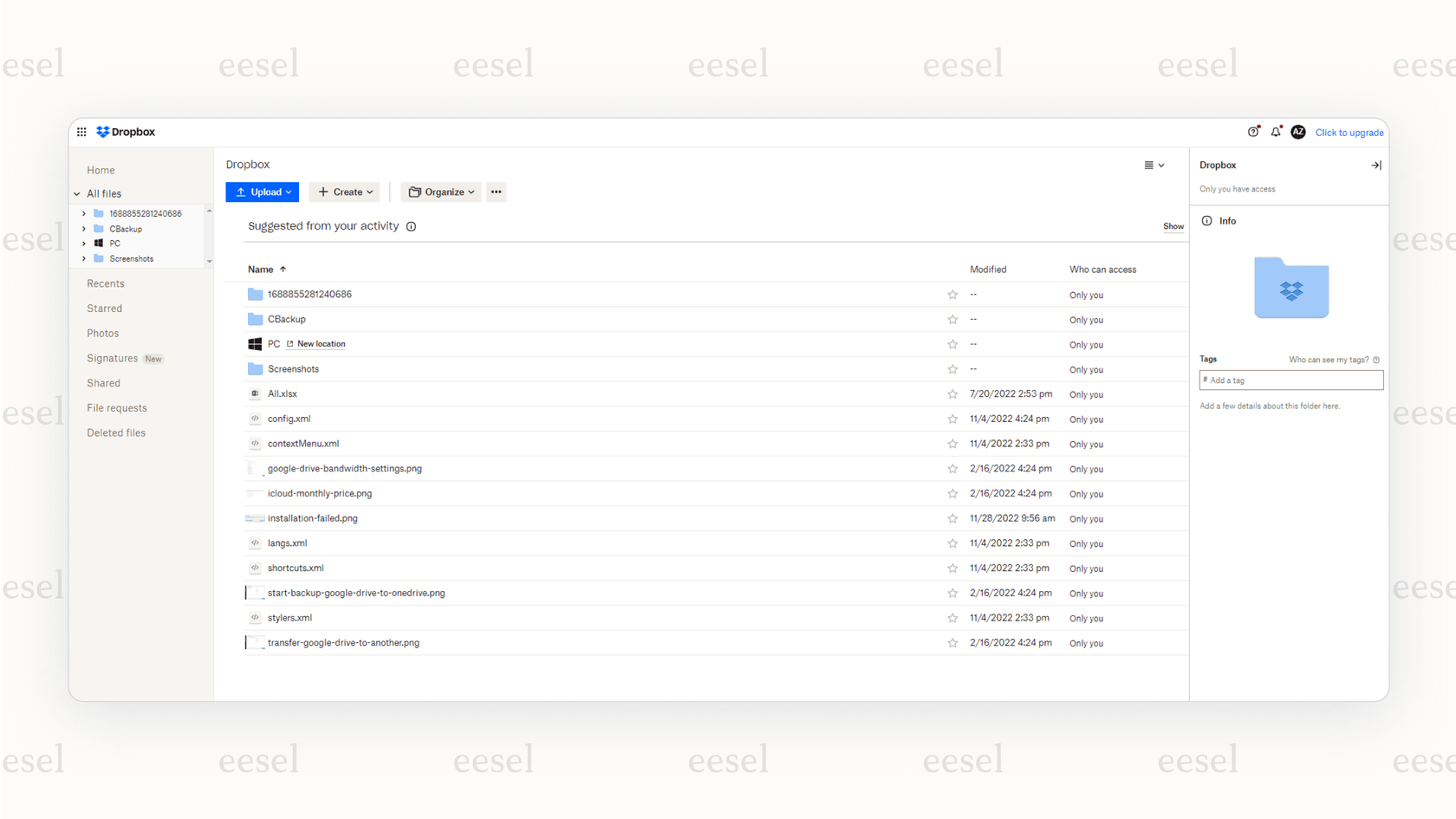
Pros:
- Super fast sync speeds.
- Incredibly easy to use with almost no learning curve.
- Connects with tons of other apps.
Cons:
- The free plan is tiny at just 2 GB.
- It can get more expensive than other options for the same amount of storage.
Pricing: The individual Plus plan starts at $9.99/month for 2 TB of storage.
4. Sync.com: Best for security among Google Drive alternatives
If security is your number one priority, Sync.com is one of the best Google Drive alternatives out there. It offers "zero-knowledge, end-to-end encryption," which is the best you can get for privacy. Basically, "zero-knowledge" means that nobody at Sync.com can ever access your files, even if they wanted to. All the security stuff happens on your device, not their servers, giving you total control. It also lets you password-protect links, set download limits, and make shares expire.
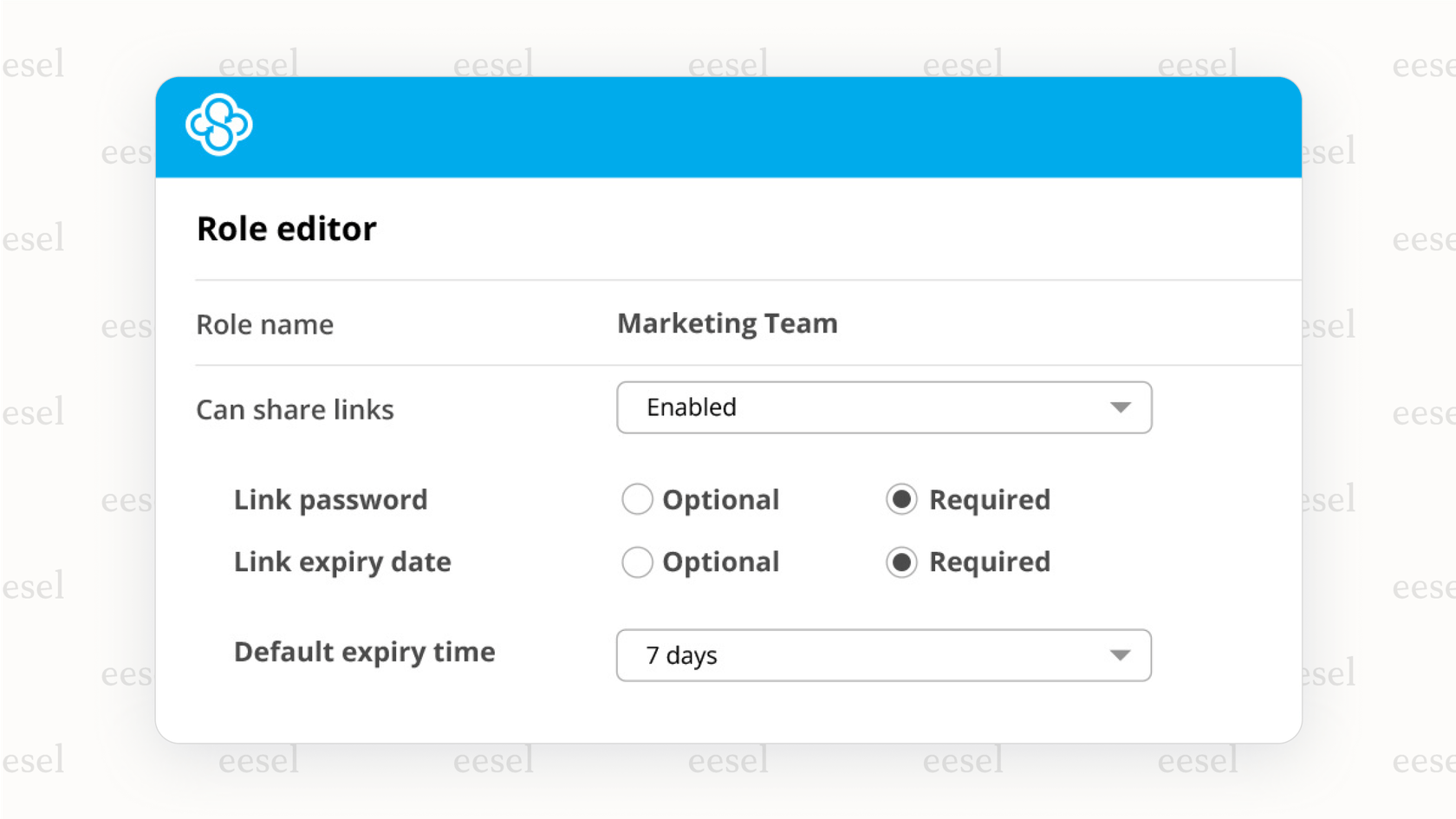
Pros:
- Top-notch security and privacy features.
- A decent free plan to get you started.
Cons:
- All that on-device security can sometimes make syncing a bit slower than other services.
Pricing: Sync.com offers a free 5 GB plan. Pro plans with more storage start at $8/month for 2 TB.
5. pCloud: Best for media and lifetime plans
pCloud stands out for two main reasons: its handy media features and its unique lifetime pricing. If you’re planning to use a service for years to come, paying once can save you a lot of money. The platform has built-in audio and video players, so you can stream your media files right from the cloud without downloading them first. For an extra layer of security, you can get the "pCloud Crypto" add-on, which gives you a client-side encrypted folder for your private stuff.
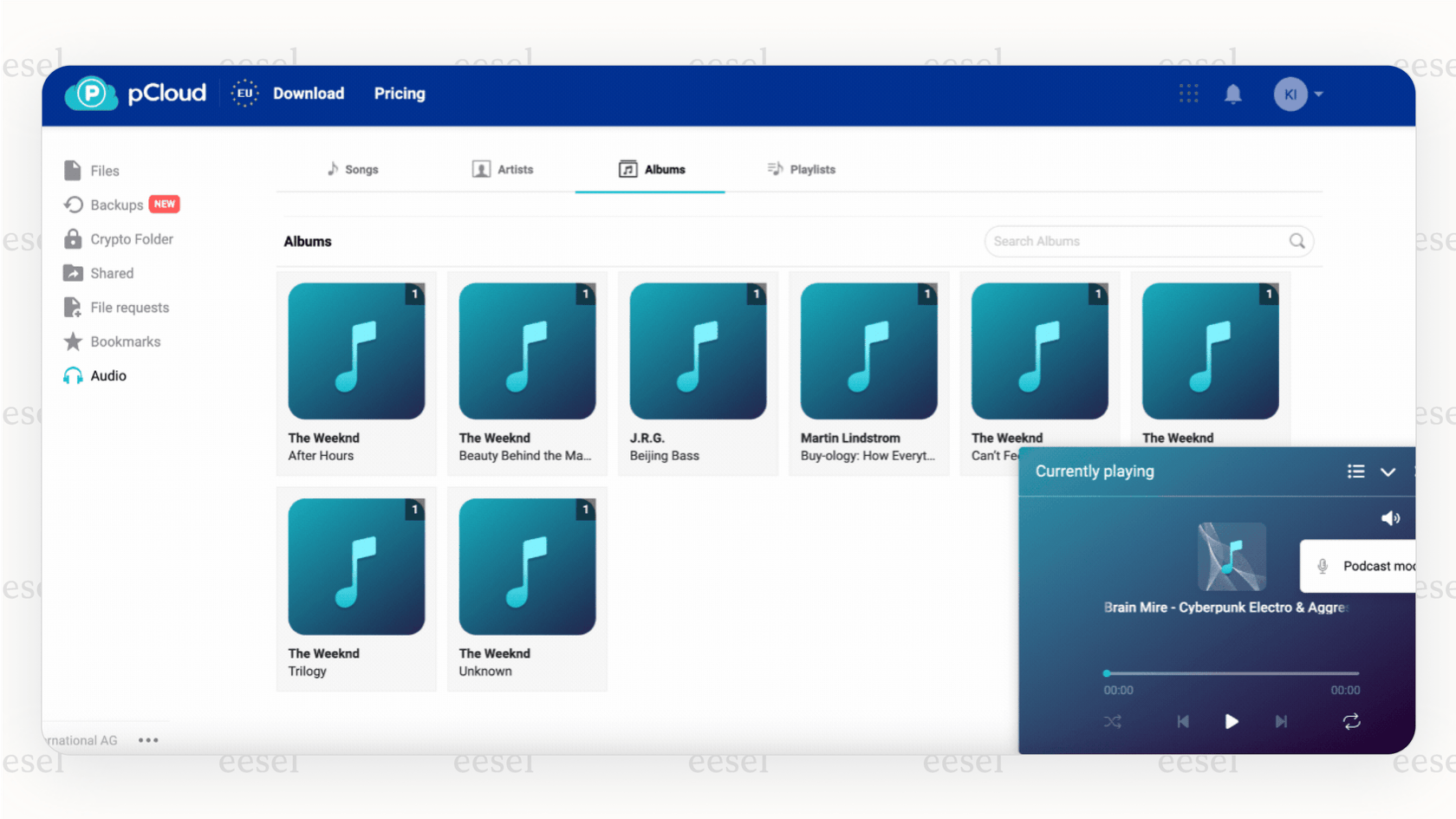
Pros:
- Great for storing and streaming music and videos.
- Lifetime plans are a fantastic deal in the long run.
Cons:
- The best encryption feature (zero-knowledge) costs extra and isn't included by default.
Pricing: You can get started with up to 10 GB for free. Lifetime plans start at a one-time payment of $199 for 500 GB.
6. Box: Best for business and enterprise collaboration
Box was built for businesses from day one, with a huge emphasis on security, compliance, and automating workflows. It’s a top pick for teams in fields like healthcare or finance because it meets strict industry standards like HIPAA. Box really shines with its deep integrations with business apps like Salesforce and Slack, detailed user permissions, and workflow tools that can help streamline how your company operates.
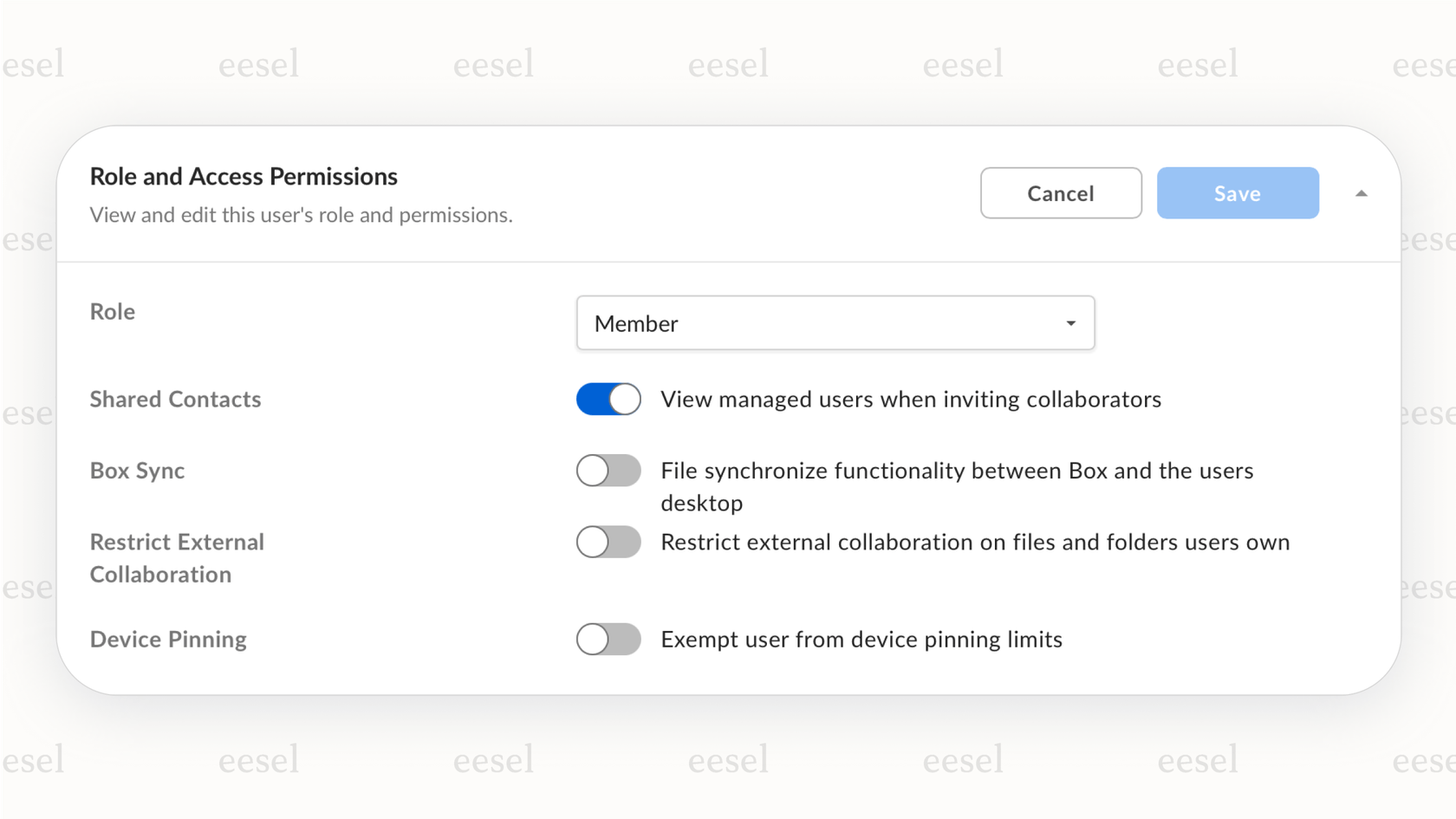
Pros:
- Enterprise-level security and admin controls.
- Strong focus on making business teamwork easier.
Cons:
- Can be pricey for individuals or very small teams.
- The cheaper plans have some annoying limits on file upload sizes.
Pricing: Box offers a 10 GB free plan for personal use. Business plans start at $5/user/month with unlimited storage.
7. iCloud Drive: best for Apple ecosystem users
For anyone using an iPhone, iPad, or Mac, iCloud Drive is the smoothest cloud storage you can get. It hums along quietly in the background, backing up your device and syncing documents from Apple's apps like Pages, Numbers, and Keynote. Everything just works without you having to mess with it. If you're all-in on Apple gear, this is the path of least resistance.
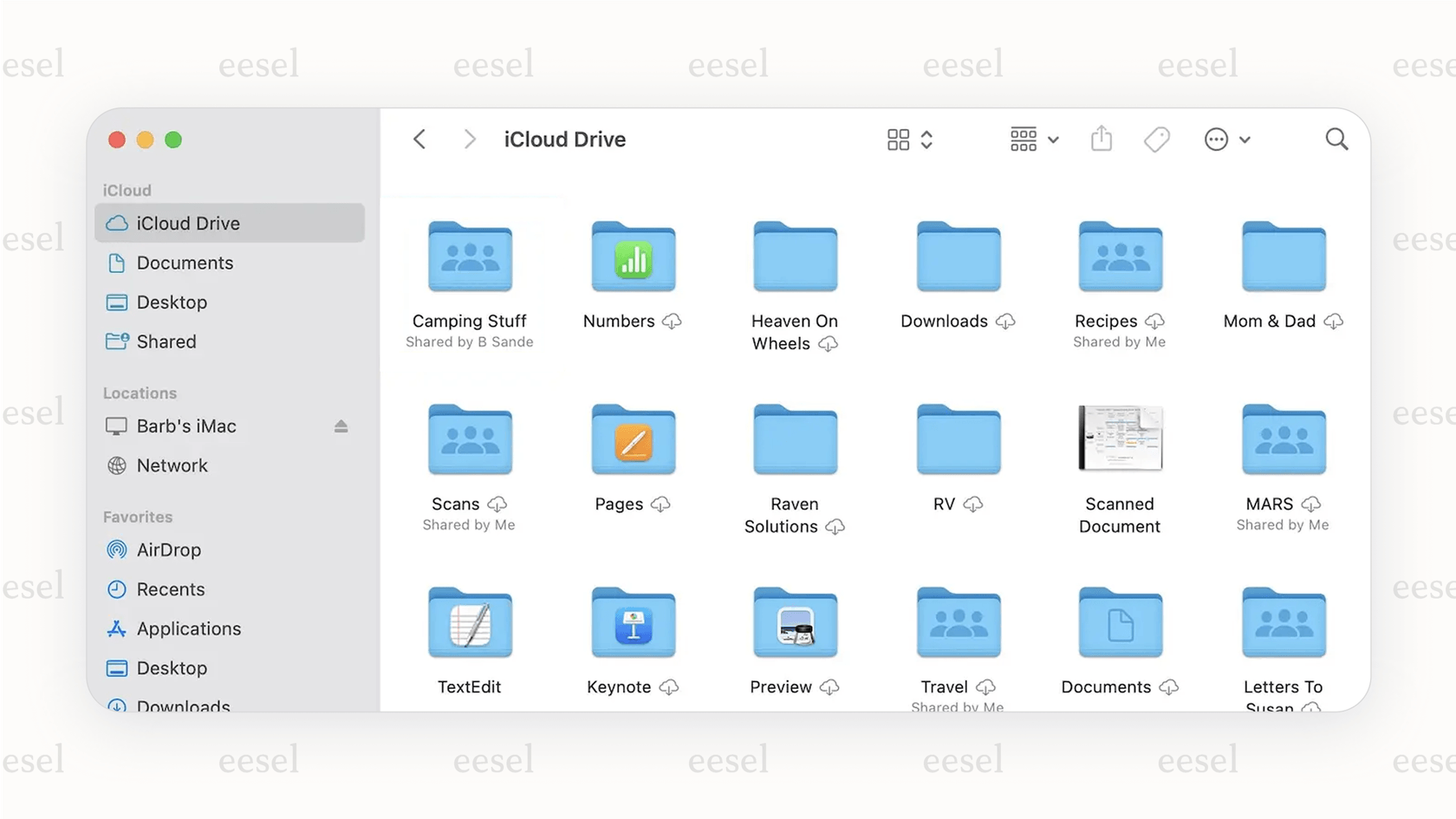
Pros:
- Flawless, seamless integration with all Apple hardware and software.
Cons:
- The web version feels pretty basic compared to the native apps.
- It’s not a great experience if you're using Windows or Android devices.
Pricing: Apple gives every user 5 GB for free. Paid plans are very cheap, starting at just $0.99/month for 50 GB.
8. Proton Drive: Best for ultimate privacy
From the team behind the super-secure email service Proton Mail, Proton Drive applies the same hardcore commitment to privacy to cloud storage. It gives you end-to-end encryption on everything by default and is based in Switzerland, which has some of the toughest privacy laws on the planet. With Proton Drive, it's all encrypted: your files, their names, the folder names ,everything. Privacy isn't a feature; it's the entire point.
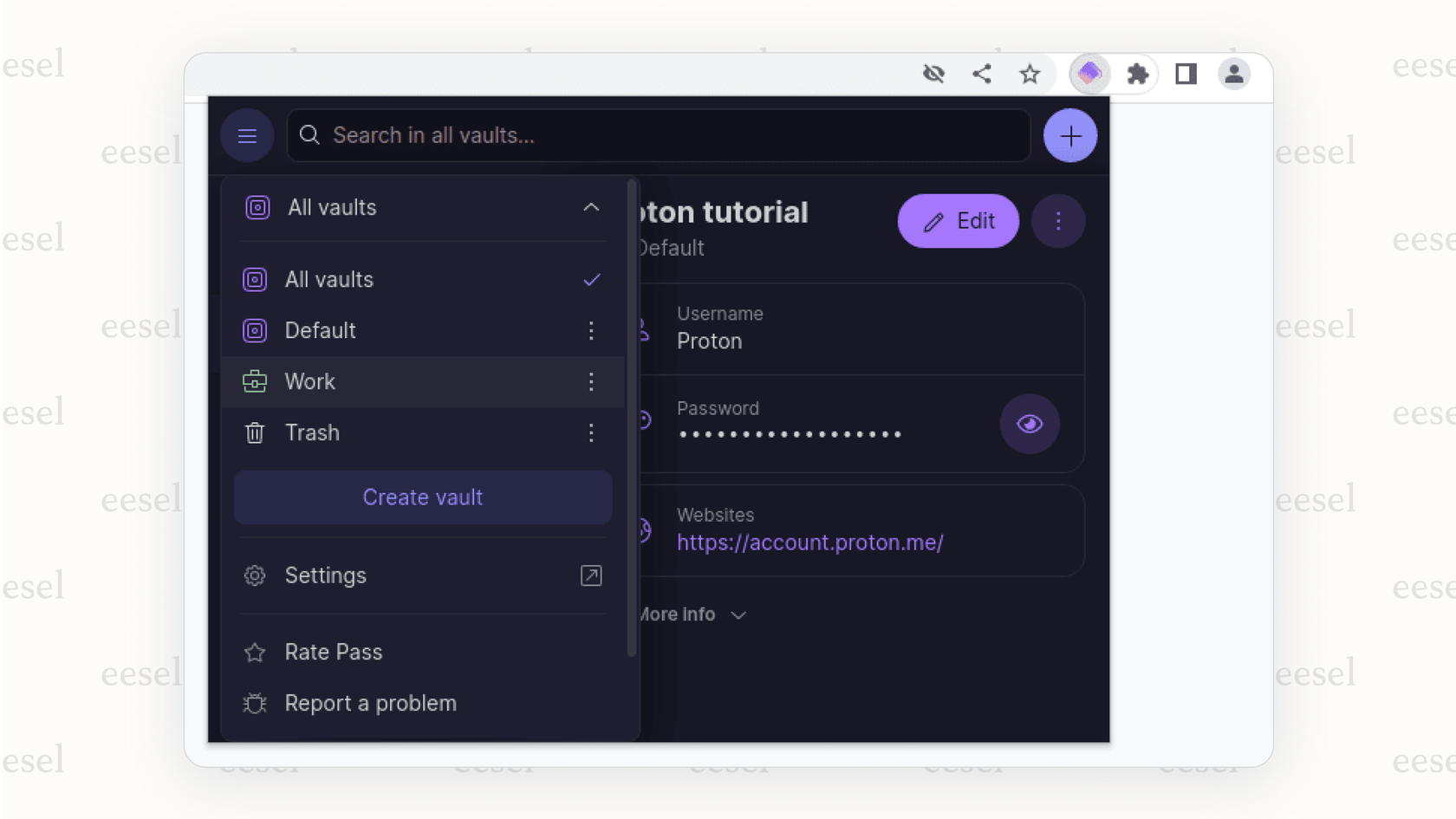
Pros:
- The strongest privacy and security settings are turned on by default.
- Based in Switzerland, a country famous for protecting privacy.
Cons:
- It doesn't have as many fancy collaboration features as Google Drive or OneDrive.
Pricing: You can start with up to 5 GB for free. The Drive Plus plan gives you 200 GB of storage for €3.99/month.
9. Nextcloud: Best for self-hosting and control
Nextcloud is a different beast altogether. It's an open-source platform that you host on your own server. This gives you complete, total control over your data, which is a huge deal for privacy advocates or businesses with strict rules about where data can live. It's more than just storage, too ,it's a whole productivity suite with tools for editing documents with your team, chat, and calendars.
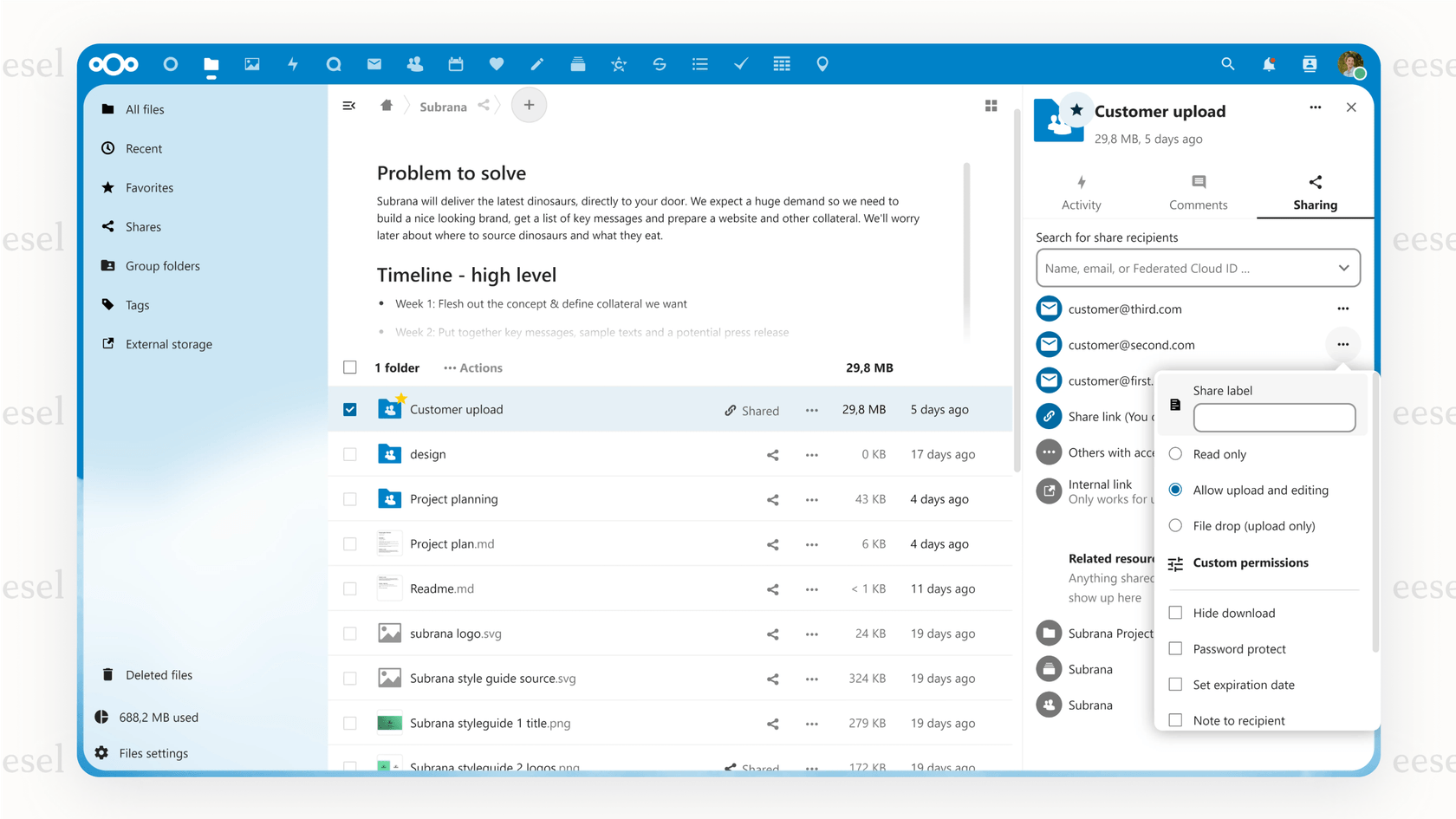
Pros:
- You own and control 100% of your data.
- You can customize it with all sorts of apps and integrations.
- The software itself is completely free.
Cons:
- You need some technical skills to set up and manage a server.
Pricing: The Nextcloud software is free. Your only costs are for the server you run it on.
10. Icedrive: Best for user-friendly interface
Icedrive is a newer name in cloud storage that’s been getting a lot of buzz for its slick, modern design and strong security. Its coolest feature is the "virtual drive" for your desktop, which lets you browse your cloud files as if they were on a local hard drive ,but without taking up any space. It also includes a client-side encrypted folder on all its paid plans, so you have a safe spot for your most important files.
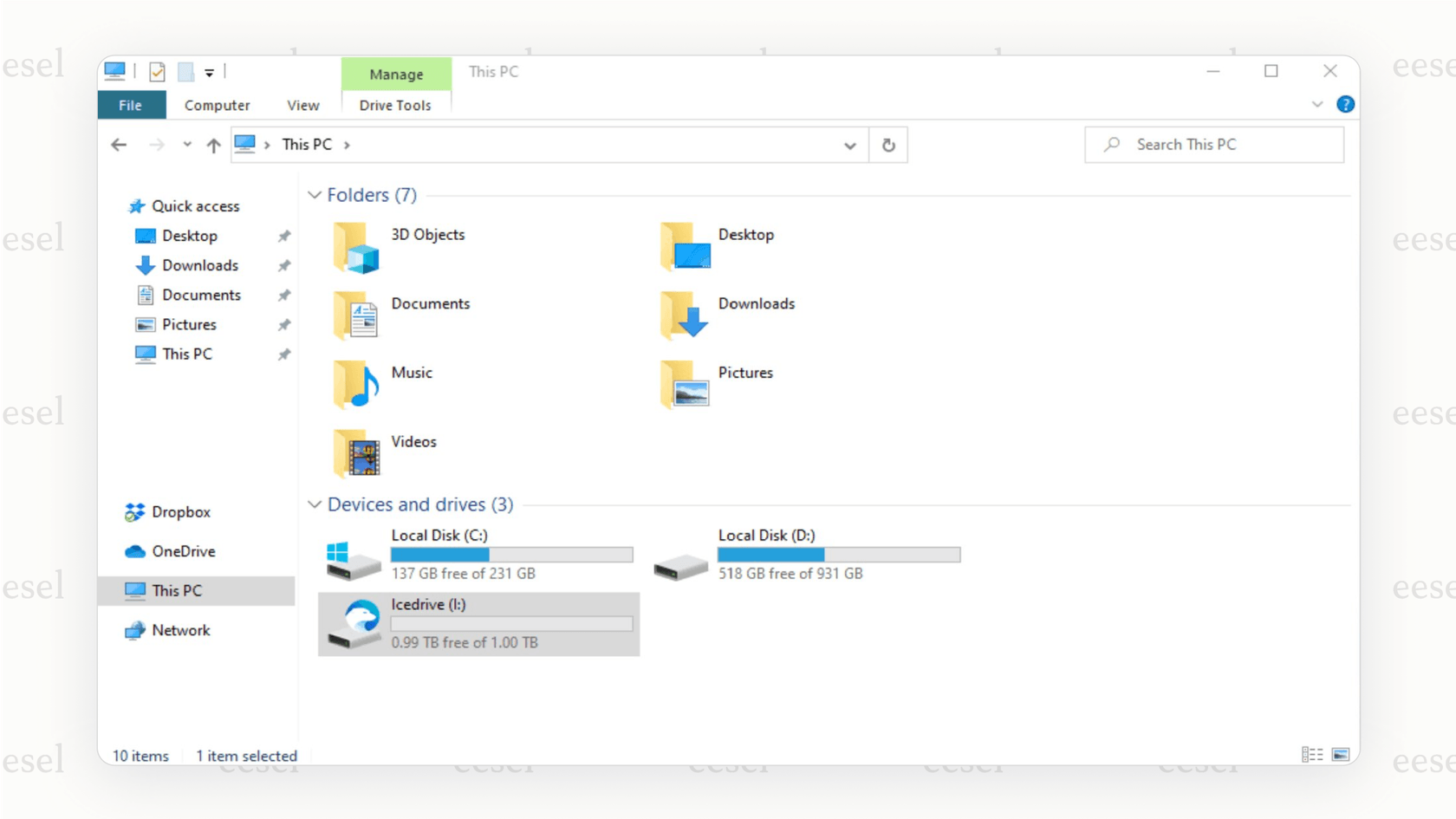
Pros:
- Beautiful and super easy-to-use apps on every platform.
- Offers lifetime plans for excellent long-term value.
Cons:
- Some tests show its speeds can be a bit slower than the top dogs.
- Its tools for team collaboration are pretty basic right now.
Pricing: Icedrive offers a generous 10 GB free plan. Paid plans start at $2.99/month (on a 2-year plan) for 1 TB of storage.
Tips for choosing the right Google Drive alternatives
Feeling a little swamped with choices? Here are a few quick tips to help you decide.
- Figure out what's really bugging you: What's the main reason you want to switch? Is it storage space, security worries, better team features, or the fact that you can never find anything? Don't pay for fancy features you won't touch.
- Look at your current setup: If your team already lives and breathes Microsoft 365, OneDrive is a natural choice. If everyone has an iPhone and a Mac, it's tough to beat the convenience of iCloud.
- Don't mess around with sensitive data: If you're handling financial records, client info, or other private data, go with a service that offers zero-knowledge, end-to-end encryption like Sync.com or Proton Drive.
- Think beyond just storing files: For businesses, the real problem usually isn't a lack of storage; it's being unable to find information when you need it. Instead of just moving files from one digital box to another, think about tools like eesel AI. It adds a layer of intelligence over your existing Google Drive to solve the root problem: knowledge you can't access.
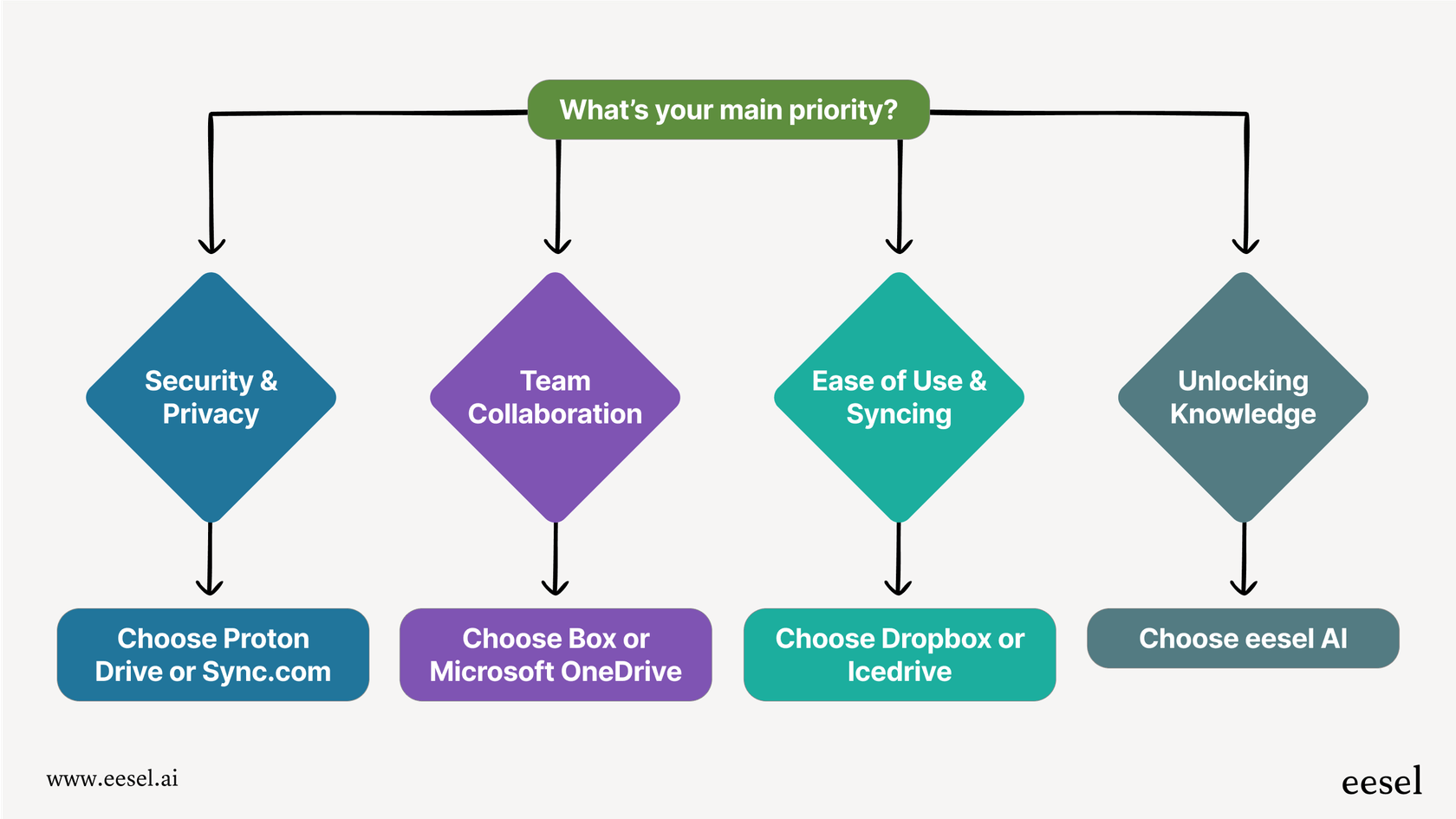
Find the right Google Drive alternatives for your needs
Moving away from Google Drive is all about finding a tool that fixes your specific frustrations. Whether you need the Fort Knox security of Proton Drive, the smooth Microsoft 365 connection of OneDrive, or the simple speed of Dropbox, the perfect option is out there.
But if your biggest headache is that your company's most important asset ,its knowledge ,is stuck and useless inside a messy Google Drive, then another storage folder isn't the answer. You need an intelligence layer. eesel AI connects to the documents you already have and gives your team instant, accurate answers right where they work.
Ready to turn your Google Drive from a messy folder into your company's most powerful asset? Start a free trial with eesel AI or book a demo and see what a difference it makes.
Frequently asked questions
For top-tier privacy, you should focus on services with zero-knowledge encryption, like Sync.com or Proton Drive. This ensures that no one but you can ever access the content of your files, giving you complete control over your data.
You can definitely find great free options. Icedrive and Box both offer a generous 10 GB to start, and pCloud offers up to 10 GB, all with solid features that make them excellent choices without costing you anything.
For a team fully invested in the Apple ecosystem, iCloud Drive is the clear winner. It's built directly into macOS and iOS, offering a frictionless experience for syncing files and collaborating through apps like Pages and Keynote.
Most platforms make migration straightforward with desktop apps that let you drag and drop your files. Some tools, like eesel AI, even work on top of your existing Google Drive, so you get new capabilities without having to move anything at all.
If collaboration is your priority, look at Box or Microsoft OneDrive. Box has robust features for business workflows and security, while OneDrive's deep integration with Microsoft 365 is perfect for teams that co-edit documents in real-time.
Yes, if you want to avoid recurring subscriptions, pCloud and Icedrive are both well-known for their lifetime plans. You make a single payment to secure a large amount of storage for good, which can be a great long-term value.
Share this post

Article by
Stevia Putri
Stevia Putri is a marketing generalist at eesel AI, where she helps turn powerful AI tools into stories that resonate. She’s driven by curiosity, clarity, and the human side of technology.






